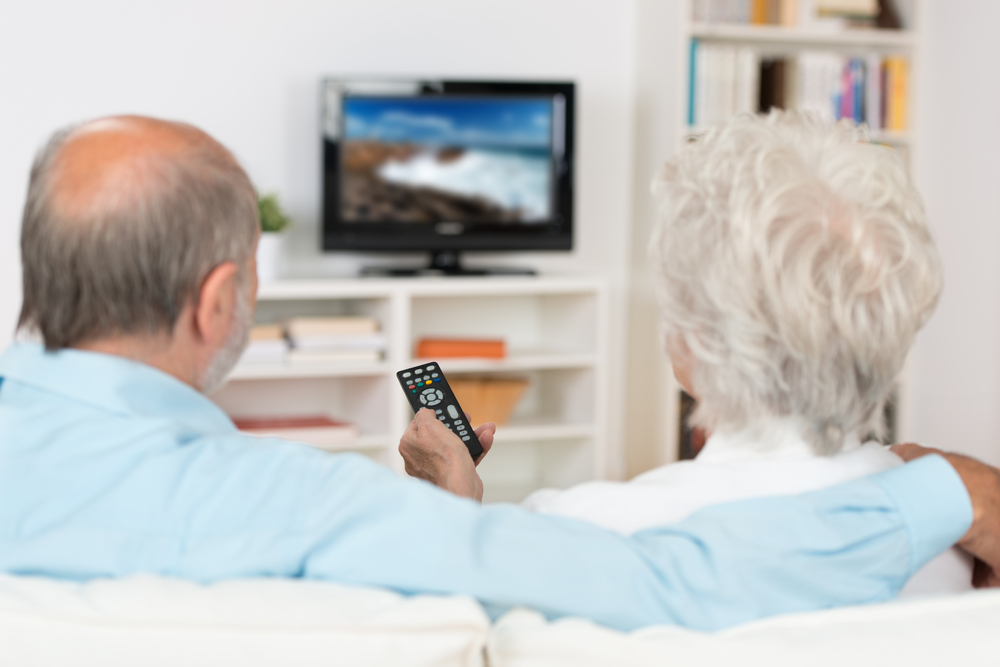Household Bills
Over-75s forced to pay £150 for TV licence from August

The TV licence fee for over-75s will come into force in August, the BBC has confirmed, after speculation it could be pushed back again in light of the ongoing coronavirus pandemic.
The BBC board confirmed the concession scheme for over-75s will come to an end so from 1 August, the majority of people in this group will need to pay £157.50 for the TV licence which they currently enjoy for free.
Those in receipt of pension credit can continue to benefit from the free TV licence.
It added that people will have a range of options to pay, such as choosing to pay weekly, fortnightly, or monthly, if they don’t want to pay the licence fee all in one go. Specialist phone contact centres have been set up or the licence can be bought online.
In March, the BBC and government confirmed they would delay reviving a TV licence fee for millions of over-75s. The date for re-introducing a fee for the TV licence for this group was pushed back from 1 June to 1 August 2020 but speculation has mounted in recent weeks over the end date.
But now, the BBC board said the scheme “will move forward”, adding that safety is at its heart so that no-one will need to leave their home to pay for one or claim a free TV licence.
‘Decision has not been easy’
BBC chairman, David Clementi, said: “The decision to commence the new scheme in August has not been easy, but implementation of the new scheme will be Covid-19 safe. The BBC could not continue delaying the scheme without impacting on programmes and services.
“Around 1.5 million households could get free TV licences if someone is over-75 and receives pension credit, and 450,000 of them have already applied. And critically it is not the BBC making that judgement about poverty. It is the government which sets and controls that measure.
“Like most organisations the BBC is under severe financial pressure due to the pandemic, yet we have continued to put the public first in all our decisions. I believe continuing to fund some free TV licences is the fairest decision for the public, as we will be supporting the poorest oldest pensioners without impacting the programmes and services that all audiences love.”
‘Another kick in the teeth’
Caroline Abrahams, charity director at Age UK, said: “We’re bitterly disappointed by this decision on behalf of the millions of over 75s who have had a torrid time over the last few months and for whom this must feel like another kick in the teeth, during a terrible year.
“Many older people on low incomes have told us that if they have to find £150 plus a year to pay for a licence then they will have to forego some other essential, or try to survive without TV at all. We genuinely worry about the mental health of older people living on their own in this situation if they have to give up their cherished TV – for some it really is all they have and their main way of alleviating their chronic loneliness.
“Everyone needs to understand that under the BBC’s scheme many hundreds of thousands of the poorest pensioners will be facing a bill they will simply be unable to afford to pay. That’s due to its flawed design – you only get a free licence if you are receiving pension credit but as many as two in five of all the pensioners on the lowest incomes do not receive this benefit, even though they are entitled to it.”
Abrahams added that the government needs to sit down with the BBC urgently to keep these TV licences for over-75s free.
The licence fee charge for older viewers was scrapped in 1999 when Gordon Brown was chancellor of the exchequer.
In 2015, the government took the decision to stop funding for free licences and the responsibility was given to the BBC board to make future decisions on the concession.
The BBC added the new scheme will cost it around £250m by 2021/22 but would have cost if £745m to continue free licences for all over-75s.